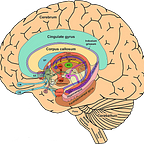Why Does God Allow Suffering?
“Either God can do nothing to stop catastrophes like this, or he doesn’t care to, or he doesn’t exist. God is either impotent, evil, or imaginary.” — Sam Harris
Most religions assert that God is all-powerful, all-knowing. Thus, the logical extension is that God must have control over human suffering and allows it to happen. And, one can’t simply point to it being the work of the devil. After all, as an example, the Bible starts out with “and the devil, who deceived them, was thrown into the lake of burning sulfur … for ever and ever” (Revelations 20:10). God must ultimately be more powerful than the evil of the world, the apparent cause of human suffering. This has led many to cast away religion for the apparent callousness of God.
Religions have responded that suffering is intentionally built in. Suffering is used as a gauntlet for spiritual and personal growth under the dominion of a greater, good, and divine plan. Without suffering, and by virtue evil, there wouldn’t be a domain for humans to exercise free will and moral responsibility. In Christianity, this is seen in James 1:2–3: “Consider it pure joy, my brothers and sisters, whenever you face trials of many kinds, because you know that the testing of your faith produces perseverance.” The core premise of Buddhism is attaining enlightenment through escaping from dukkha (suffering). In Islam, the Quaran writes, “Do people think that once they say, We believe, they will be left alone and not be put to the test?” [Quran 29:2].
However, one may still feel doubt. How can this very real feeling of pain and suffering just be a test? Well, first, that is kind of the point. It wouldn’t be much of a test if it didn’t feel real. Thus, the way to transcend suffering is through faith in God and the divine plan. In addition, a helpful perspective to take is remembering the characteristics of humans as compared to God. Humans are constrained to a four-dimensional existence. While we have dominion over the three physical dimensions, time runs us amok and dominates us. However, God in most religions has the all-knowing power to see the past, present, and future. Thus, he is not constrained to time as humans are, he is a higher-dimensional being, hence the power imbalance.
Now, how does this relate to suffering? Suffering is inherently a time-constrained human activity. Although some sufferings differ in physical and proportionate intensity, human suffering is at the root defined by the amount of forward-time left in a period of suffering. How long until I can find respite from the suffering, from this hunger in the form of food, from the cancer pain in the form of opiates, from loneliness in the form of others? When humans completely get through a period of suffering, the lived experience becomes boiled down into a thought singularity. In this remembrance of the suffering, a human brain may recreate the suffering, which importantly is not the original suffering itself. In the present moment, the suffering is of the past, and thus other means of experiencing can be used such as conscious analysis. Eventually, some experiences being quicker than others, humans find meaning in their suffering, gratefulness for the strength it provided or wisdom from the perspective. Thus remembering God’s free dominion over time, human suffering becomes an uncruel test of love.
